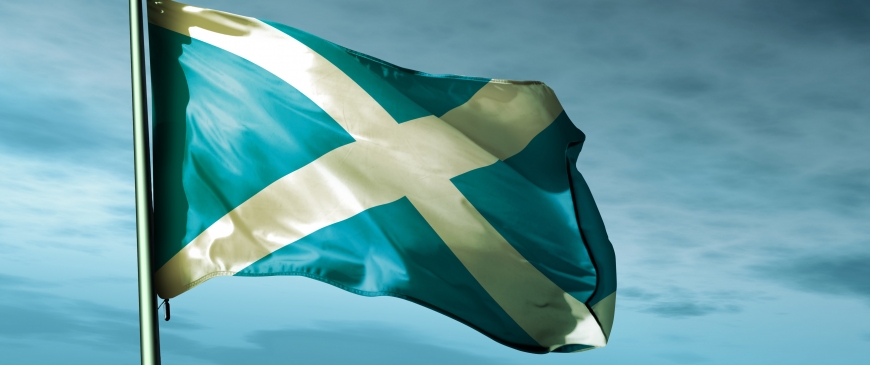
'Known unknowns' about Scotland’s place in Europe
Several unresolved questions hang over whether the Scots have a future in Europe, says John Kerr
In a little under two months Scots may vote to end their 300 year-old union with England. But their country is also part of a younger union in which most Scots wish to remain. Could Scotland keep EU membership rights on independence day? It is an important question, over which nationalists and unionists disagree. The answer is uncertain, but Scots should be aware of at least seven “known unknowns”.
1. The EU would be in uncharted waters. There is neither precedent not treaty provision for a member-state splitting with both parts wanting to stay in. Greenland wanted to leave. The Czechs and Slovaks split before joining.
2. It is not just up to the Scots. All 28 current EU members would have to agree terms. National governments have a natural aversion to secession: several EU countries have yet to recognise Kosovo’s breakaway from Serbia. The oft-drawn parallel between Scottish and Catalan separatism is inexact: Scotland and England have different legal systems, and the SNP wants to keep the Crown. Certain capitals might be tempted to show that the road to separate EU membership could be long and winding.
3. Brussels avoids becoming involved in disputes between constituent parts of a member state. So an agreed division of UK assets and liabilities would be a precondition for EU talks. And the EU would need clarity on Scotland’s currency and regulatory arrangements. It follows unrelated disputes, for example, over Trident bases, which could cause knock-on delay.
4. Once these preconditions are met, negotiation with Brussels should be easier. There is dark talk in London of Scotland going to the back of an accession queue, behind Macedonia and Montenegro. But there is no queue; progress depends on a candidate country’s ability to apply EU laws. Scotland already does, though discrimination against its English neighbours, for example on student fees – illegal were the two countries to become separate member states – would have to cease.
Those who predict that Scots would have to adopt the euro forget that Scotland would fail all the economic tests. Common sense would argue for letting her remain inside a common travel area with the UK and Ireland, rather than joining the Schengen zone. But the SNP would need to drop its breezy claim to a budget rebate, similar to the one Margaret Thatcher secured. Member states, many poorer in per capita terms, would not agree to it; and the chutzpah of simultaneously seeking to join the club and pay a reduced subscription would be resented.
5. Scotland cannot make up the rules. Successive Commission and Council presidents have explained that the residual UK, minus Scotland, would be the “continuator” state, and remain at the EU table; Scotland, the new state, would need to ask for a new seat from outside, following the accession rules laid down in Article 49 of the EU Treaty.
The SNP, and a minority of UK lawyers, disagree. They believe Scotland could stay inside the club and pull up another chair using Article 48, which covers treaty changes sought by existing members. But however loudly one asserts that the referee is wrong, it is he who would run the game.
6. Mind the gap. In either case, a hiatus between secession from the UK and full accession to the EU is inevitable, given the need for recognition and ratification. All existing member states would have to recognise Scottish independence before Scotland could sign an EU treaty. And such treaties enter into force only when ratified by all, which takes time: in Belgium, for example, seven separate legislatures have to approve. Countries with an accession treaty awaiting ratification are usually given an observer’s seat in Council – though, pending full membership, they have no right to vote or to nominate a commissioner. What would be novel – though not necessarily unachievable, since the situation itself is unprecedented – would be an agreement that, during the gap, Scottish enterprises, farmers, fishermen, workers and students should retain their EU rights, de facto while not yet de jure. Such a deal would make sense. And, though the treaty is clear that EU citizenship is only the consequence of citizenship of a member-state, there would be strong arguments of equity for bridging the gap.
7. Anglo-Scottish teamwork would be crucial. Since Brussels can negotiate only with states, pre-independence talks would have to be led, at least notionally, by London. The SNP now recoils at that idea, and denies there is a problem: Whitehall dismisses it as the SNP’s problem. But it would be in Whitehall’s interest to help: if no transitional arrangements were in place when the UK broke up, the task of manning the new frontier of the EU customs union would fall to those south of Hadrian’s Wall.
Uncertainties would abound. Negotiation, or informal pre-negotiation, before independence could be obstructed by other member states, or by intransigence in London or Edinburgh. Teamwork might be tricky, given the UK and Scottish elections in 2015 and 2016, and the possible distraction of renegotiation: other member states might choose to wait and see, since Scotland’s position in the EU would be very different if the residual UK were to leave. Campaigners’ claims to future certainty are certainly suspect.
As one of the disenfranchised diaspora, I hate seeing my countrymen having to choose between being Scottish and British. I think the dichotomy as false as that between being British and European. Wider horizons create wider opportunities; and just as EU membership has greatly benefited the British, so the 1707 union has hugely benefited Scots. Long may both last.
Lord Kerr is chairman of the Centre for European Reform.
